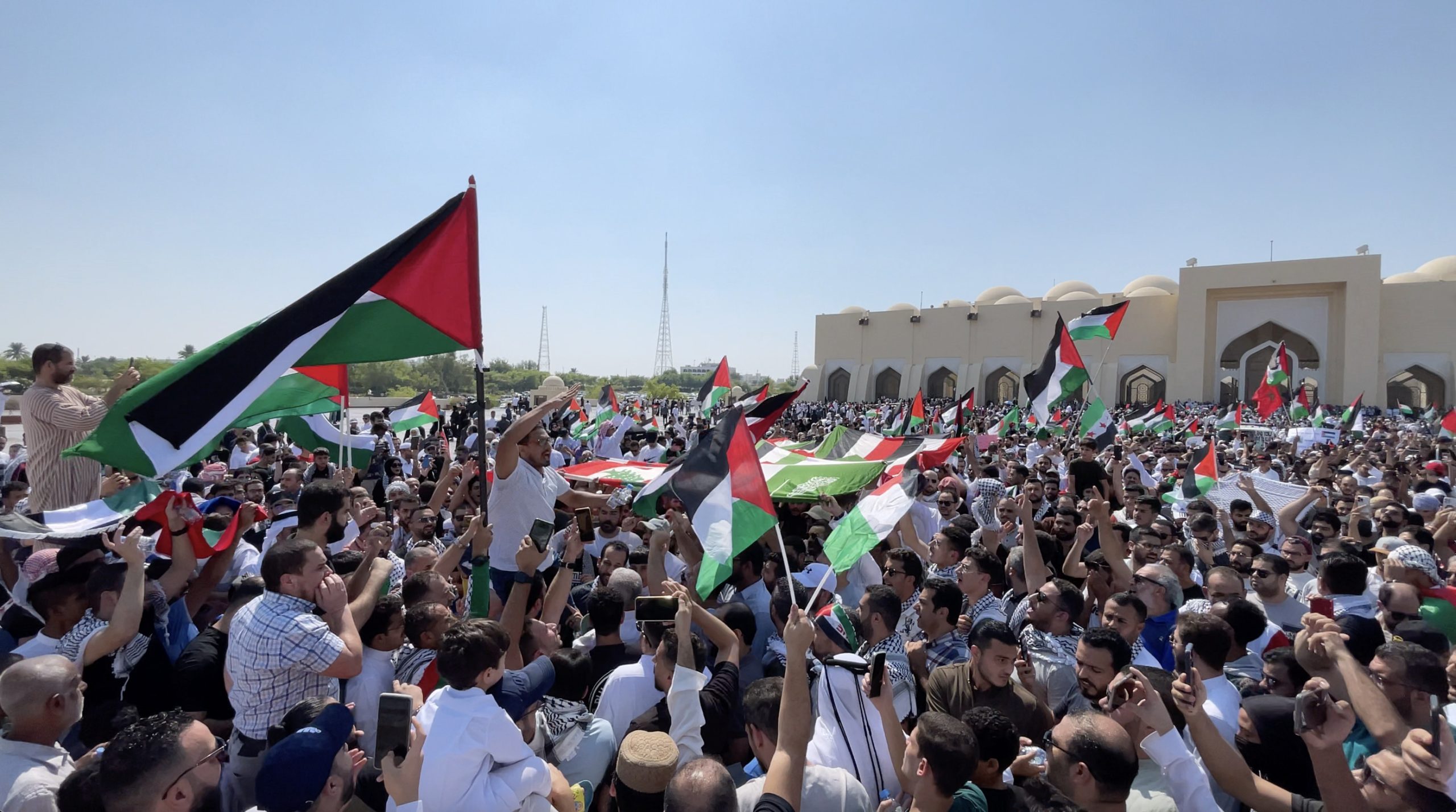
NGOCSTIP – Qatar witnessed one of its most intense public uprisings in recent years as thousands took to the streets of Doha. On September 12, 2025, citizens marched in anger following an Israeli airstrike that struck the heart of the capital just three days earlier. The strike reportedly targeted Hamas officials but resulted in the death of six individuals and severe damage in a civilian area.
The rare protest was ignited by outrage over what Qataris view as a violation of national sovereignty. Demonstrators carried Palestinian flags and chanted slogans against Israeli aggression. The atmosphere in Doha was charged with emotion as calls for revenge grew louder. Police maintained distance while trying to control traffic and prevent chaos from spreading. The foreign ministry described the attack as an act of state terror and an open breach of international norms. People questioned how such a powerful strike could happen without any prior diplomatic warning.
Across the streets of Qatar’s capital, people expressed rage and sorrow over what they see as blatant disrespect toward their nation. Banners declaring support for Palestine waved in the air while loudspeakers blared emotional speeches from community leaders. Qatar has long positioned itself as a key diplomatic player in Middle Eastern affairs, often acting as a mediator in conflicts involving Israel and Palestine. This recent attack shocked citizens who believed their country’s neutrality and diplomacy offered some level of protection. For many, the airstrike shattered that illusion. Chants for justice echoed through the city as residents insisted that Qatar respond decisively. Several local politicians joined the crowd, further fueling calls for governmental action. Tensions between civilians and authorities remained low, but the level of frustration was undeniable. No previous protest in recent memory has drawn such a diverse and unified crowd in the country.
“Read about: Israel Forces Arrest Over 100 Palestinians and Slam the West Bank With a Sudden Curfew”
The Qatari foreign ministry released an official statement condemning the strike as state terrorism. According to the government, the airstrike not only targeted Hamas members but also endangered civilians and attacked Qatar’s sovereignty. News of the assault rapidly circulated through local and international media, raising alarms within the diplomatic community. Government officials accused Israel of crossing a red line by launching military action on foreign soil. Officials immediately held meetings to assess potential responses. Qatar’s allies in the Gulf and across the Islamic world voiced solidarity and urged caution. Multiple officials repeated the phrase state terror during televised interviews. By using such strong language, Qatar signaled a major shift in tone toward Israel. Meanwhile, activists pushed for stronger steps beyond diplomatic condemnation. They demanded sanctions and urged a complete severance of economic and political ties. The international community closely watches as Qatar decides its next move.
“Read more: Australia Rolls Out New Pneumococcal Vaccine: What Everyone Needs to Know Right Now!”
With tensions escalating rapidly, Qatar prepared for a high-stakes diplomatic campaign. Prime Minister Sheikh Mohammed bin Abdulrahman Al Thani flew to New York for an urgent meeting with U S President Donald Trump. The conversation reportedly focused on regional stability, security cooperation and Washington’s stance on the Israeli strike. The talks were described as tense, with Qatar demanding an explanation for the lack of U S intervention or condemnation. Meanwhile, preparations began for an emergency Arab Islamic summit scheduled for September 14 and 15. Qatar played a central role in organizing the summit, inviting regional leaders to discuss collective responses. The summit aims to redefine alliances and question the credibility of Western partners in protecting Middle Eastern sovereignty. Early reports suggest that several nations are open to establishing new security coalitions outside the U S orbit. Qatar now stands at the center of a geopolitical crossroads.
What began as a public protest has now turned into a nationwide movement pressing for real action. Government officials work tirelessly day and night to transform outrage into structured policy. The Ministry of Defense boosts border surveillance and seeks additional support from regional allies. Internal security agencies closely monitor potential threats linked to the strike. Moreover, strong momentum rises within the Qatari parliament to launch economic measures targeting Israeli-affiliated businesses. Civil society organizations urge Qatar to reassess all diplomatic and financial ties with Israel. The strike sparks a powerful wave of nationalism and urgency across the country. Leaders face growing pressure to prevent any future attacks. Furthermore, political analysts warn that Qatar must carefully balance public demands with diplomatic strategy. For now, one thing remains certain: the people of Qatar stand united in their call for accountability and protection.
This article is sourced from X and for more details you can read at ngocstip.org
Writer: Sarah Azhari
Editor: Anisa